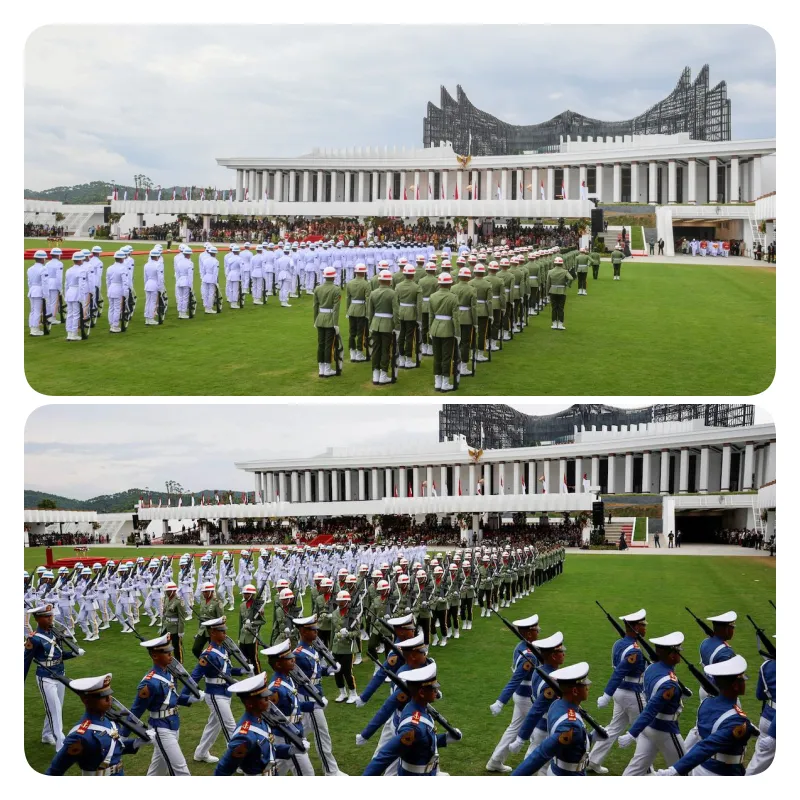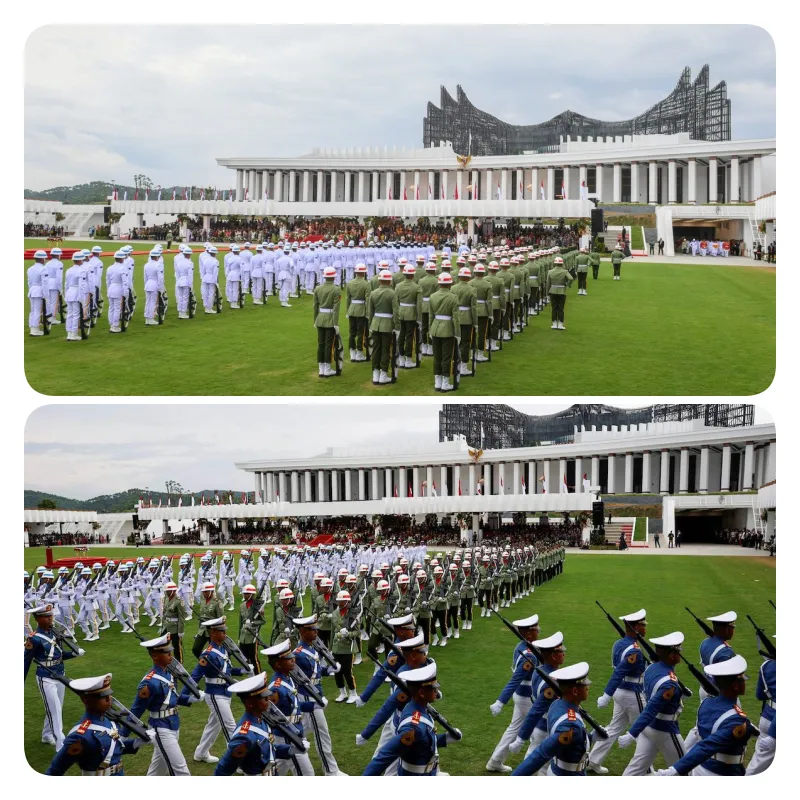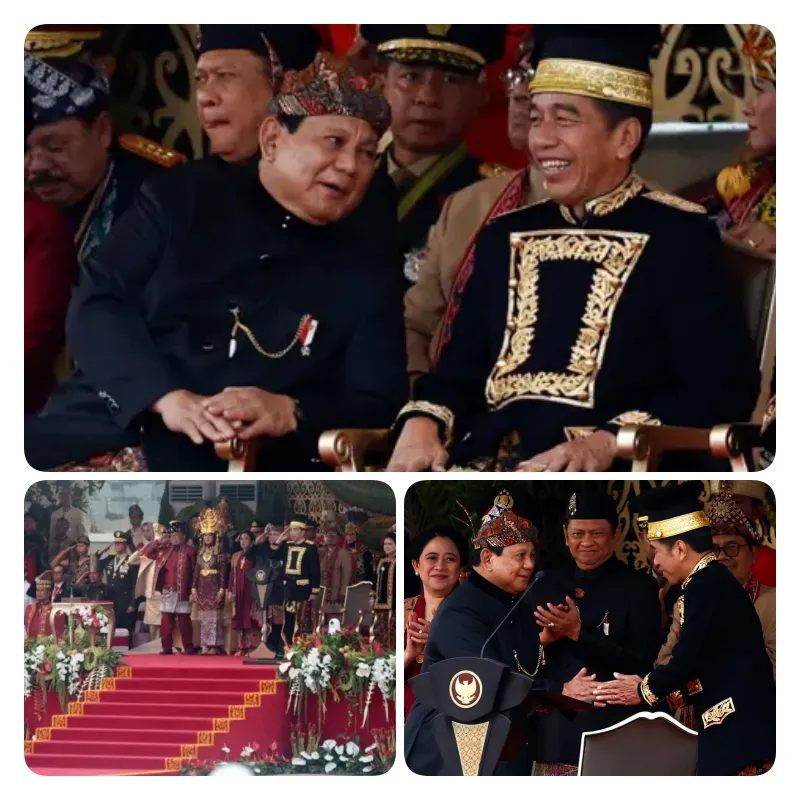
Indonesia Celebrates Independence Day for the First Time in Its New Capital
Indonesia marked its 79th Independence Day with a ceremony in Nusantara, the new capital city being constructed in the heart of a forest to replace Jakarta.

On August 17, hundreds of officials and guests, dressed in traditional attire representing various Indonesian tribes, gathered on a lawn amidst the massive construction site of government buildings in the center of Nusantara, located in East Kalimantan province on the island of Borneo. The ceremony took place at the new presidential palace, designed in the shape of the Garuda, a mythical bird and national emblem of Indonesia.
Initially, the ceremony was intended to inaugurate Nusantara as the new capital of the country, but due to delays in the mega-project, the exact date for the official transfer remains uncertain.
President Joko Widodo had initially planned to invite 8,000 guests, but the number was later reduced to 1,300 due to Nusantara’s limited infrastructure capacity to host such a large crowd.
More than 5,000 Indonesian police and military officers were deployed for the event, and 76 honor guards marched with the national flag. The Independence Day celebration in Nusantara was held simultaneously with a ceremony at the Merdeka Palace in Jakarta, presided over by Vice President Ma’ruf Amin.
President Widodo began working at the new presidential palace in Nusantara at the end of July and held his first cabinet meeting there on August 13.
Jakarta, with a population of over 10 million, faces severe traffic congestion, flooding, and air pollution. Traffic jams alone cost the country’s economy approximately $4.5 billion annually.
Moreover, some areas of Jakarta are sinking by up to 25 centimeters per year, double the average rate of major coastal cities globally. Experts predict that one-third of the current capital could be submerged by 2050, prompting President Widodo’s administration to relocate the capital.

However, the project has faced criticism from environmentalists and indigenous communities, who argue that it degrades the environment, reduces the habitat of endangered species such as orangutans, and forces indigenous people, who rely on land cultivation for their livelihood, to relocate.
The majority of the investment in building the new capital comes from Indonesian companies, with the government contributing only 20% of the total $33 billion project cost. To attract investors, President Widodo recently introduced various incentives for the new capital, including land use rights for up to 190 years and generous tax breaks.
With a population of approximately 275 million, Indonesia is Southeast Asia’s largest economy. President Widodo, who has led the country for the past 10 years, is set to leave office in October this year.Construction of the new capital began in mid-2022, covering an area of about 2,600 square kilometers in the dense forests of Borneo. Indonesian authorities have stated that Nusantara will be a green city with extensive forests and parks, utilizing renewable energy sources and implementing smart waste management systems.



